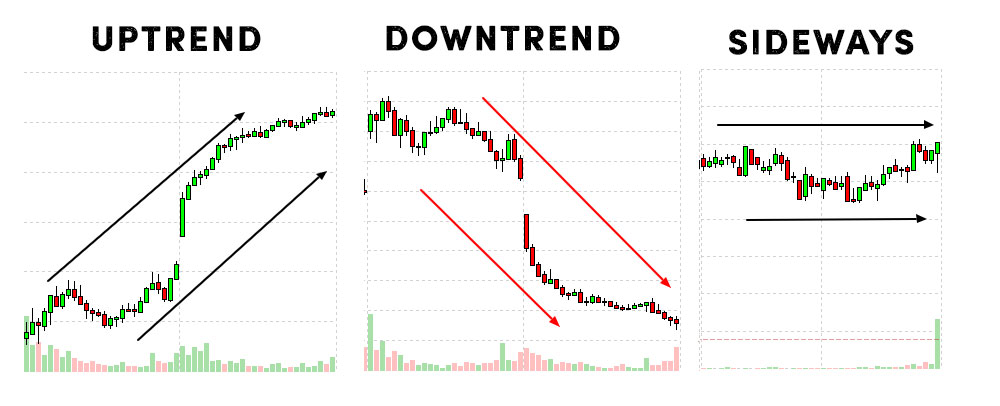
1. Your feelings should be inspected in the front of you
"Successful investing doesn't require the ability of an individual... what you require is the grit and determination to control the urges of others, which can push them into financial difficulties." Warren Buffett, Chairman of Berkshire Hathaway, is an investor sage and role model who is quoted as saying this.
Before we get started we'll give you a tip. We recommend not investing greater than 10% individual stocks. The rest should be invested in low-cost mutual funds which are diversified. Anything you'll need to have in the next five years shouldn't be invested in stocks at all. Buffett stated that investors should not let their heads , but their guts guide their investment choices. Actually the investors who trade too heavily on the basis of emotions are among the most common ways to sabotage their portfolio's performance.
2. Select companies, not ticker icons
It's easy to forget that under the alphabet soup of stocks that are crawling along the bottom every CNBC broadcast is a legitimate business. However, don't let stock trading become an abstract concept. You're a shareholder in the business if you purchase shares of the company's stock.
"Remember that buying shares in the stock of a company creates a partial ownership of the company."
You'll find an overwhelming amount of information as you look for potential business partners. If you're wearing an "business buyer' hat, it's much easier to choose the right items. You want to know about how the business is run, the competition, the longer-term outlook and if it will bring something new to the portfolio.

3. Make plans for panic-inducing times
Investors are sometimes enticed to alter their views on stocks. It's easy to buy high and sell low in the midst of a moment. Journaling is a helpful tool. Track the factors that make each stock worthwhile and record any circumstance which could be reason enough to keep them separate. This can be used as an example:
Why I am buying What do you find appealing about the business. Also, what potential future developments you see. What are your expectations? What milestones and metrics are the most important to you in evaluating progress for your business? Catalog the potential pitfalls and mark which ones could be game changers and which would be signs of a temporary setback.
What would motivate me to sell: There are often good reasons to break up. The section in your journal should include an investment agreement. It should explain what you would do to make the stock more sellable. It doesn't have to be about price movements, specifically not in the short-term, but rather fundamental changes to your company which affect its ability to continue to grow over the long run. An example: A business loses a large customer. The successor of the CEO steers the business in a completely new direction. Perhaps, your investment thesis doesn’t work out in a reasonable amount of time.
4. You can build gradually your position
The most powerful asset of investors is timing, not time. Investors who have the most success buy stocks to expect to receive rewards, whether that's via dividends or price appreciation. -- over many years or even decades. It is possible to buy at a slower pace and not have to hurry. These are three strategies to limit price volatility:
Dollar-cost average sounds complicated however, it's really not. Dollar-cost Averaging is when you invest an amount that is predetermined over a regular time period like every week or once per month. The money you invest will purchase more shares when the stock prices fall and decrease when they increase however, it will still be the cost you pay. A few online brokerage companies permit investors to set up an automated investment plan.
Buy in thirds: This is similar to dollar-cost averaging. "Buying in threes" can save you from the unpleasant feeling of getting poor results right away. Divide the amount you invest by three. Then, choose three points to purchase shares. They could be scheduled to be scheduled regularly (e.g. quarterly, monthly) or in response to performance or company events. For instance, you might purchase shares prior to when the release of a new product and then transfer the remaining portion of your funds to it when it's successful.
Buy "the basket": Can't decide which company in a particular industry will emerge as the winner over the long term? Buy all of them A stock basket can relieve the pressure from selecting "the best." Being able to own an investment in all the companies you've examined means that you won't be left behind if any company fails. It is also possible to make use of any gains made by the winning company to offset any losses. This strategy will assist you in determining the company that is "the one" which means you can double down on your position in the event you want to.

5. Do not trade too much
The quality of your stock should be checked at least once a quarter. It's difficult to keep track of your scoreboard. This can lead you to responding too quickly to short-term shifts, focusing on the price of shares rather than the company's values, and feeling that you have to do something even though it's not needed.
Find out the reasons your stock has rapid price fluctuations. Is your company the victim of collateral damage resulting from the market responding to an unrelated event? Is something different in the business of your company? Does it have a significant impact on your long term outlook?
The long-term success and performance of a company that has been carefully chosen is rarely affected by immediate noise (blagging headlines and price fluctuations). It's how investors react that matters. This is where your investing journal, a calm voice that speaks for you in times of uncertainty, can assist you to stick it out through the inevitable downs and ups associated with investing in stocks.